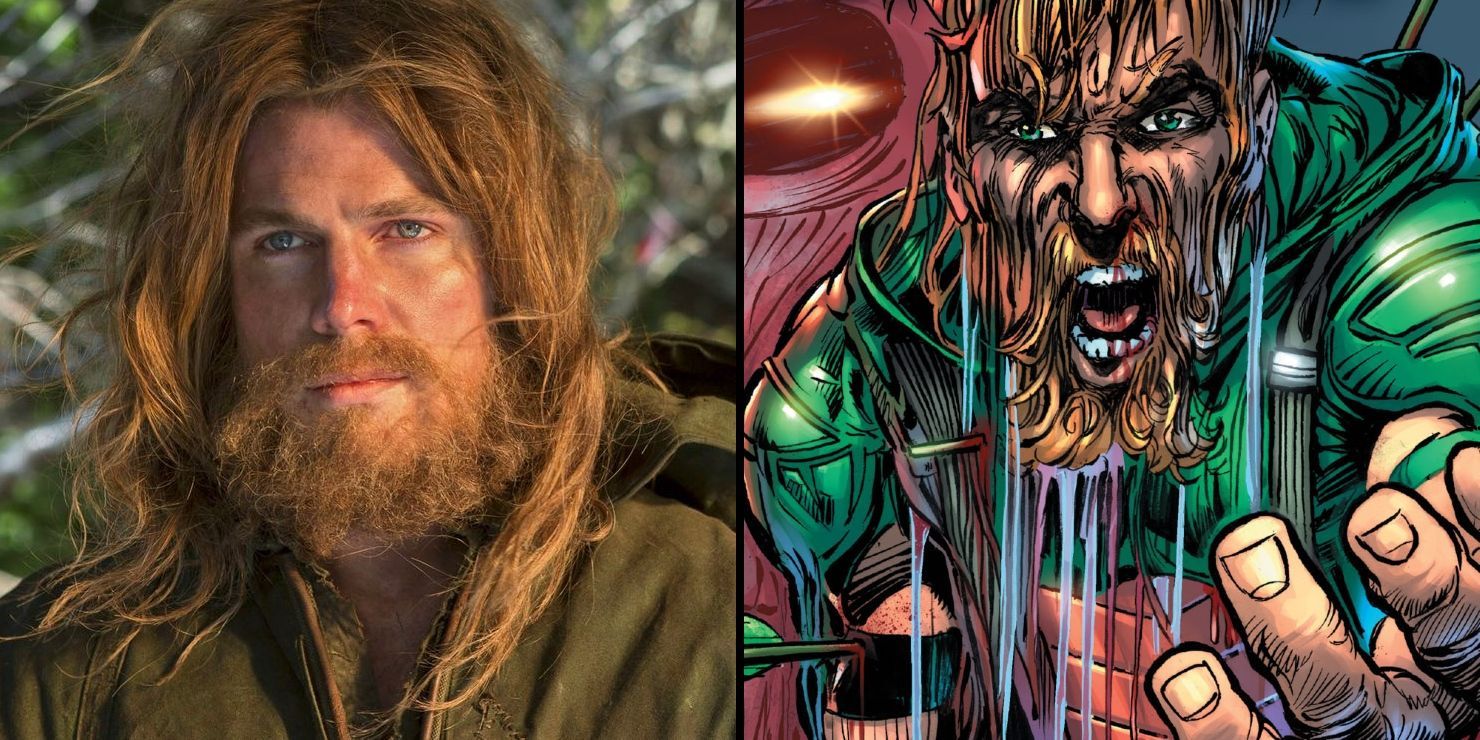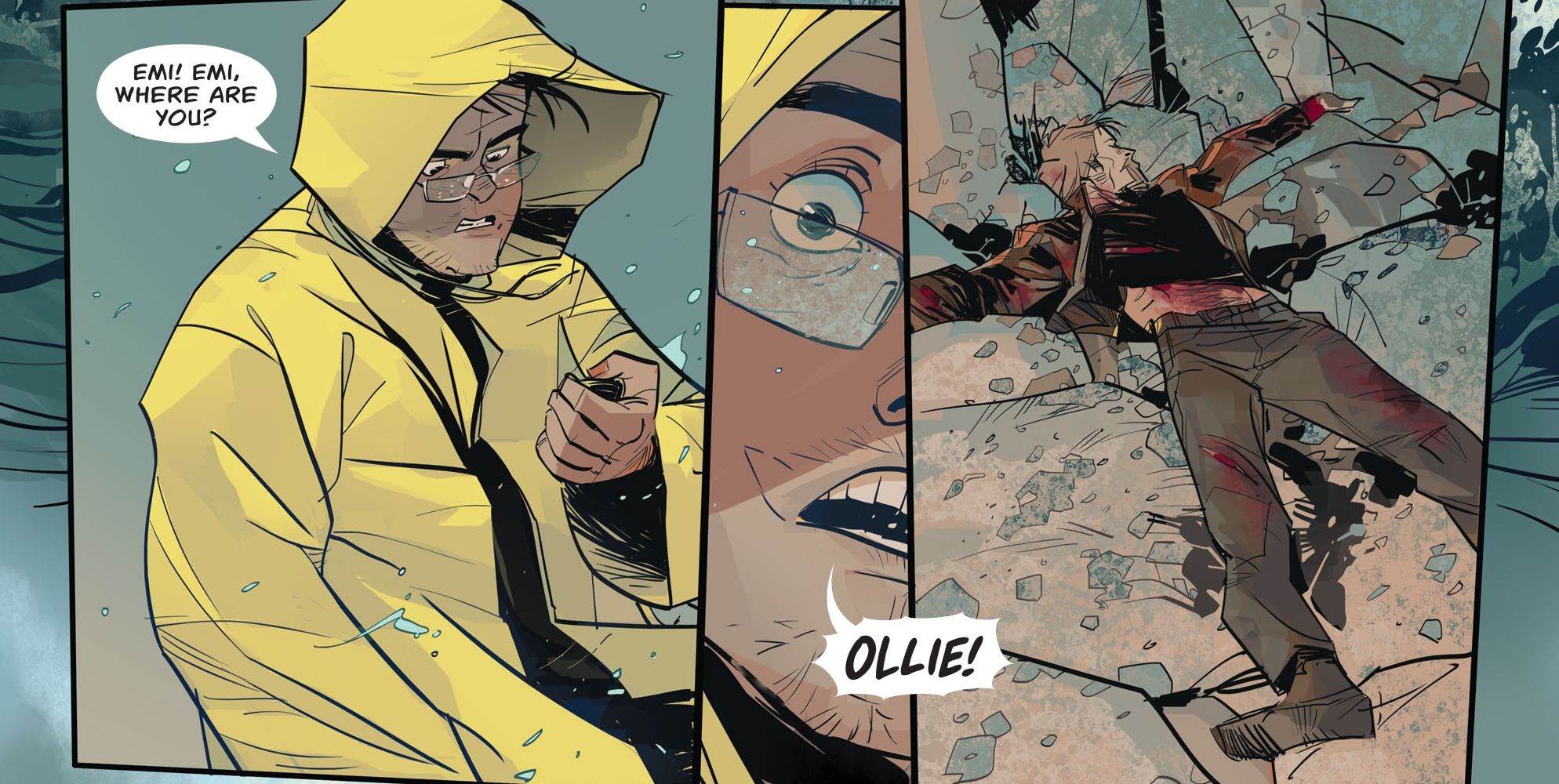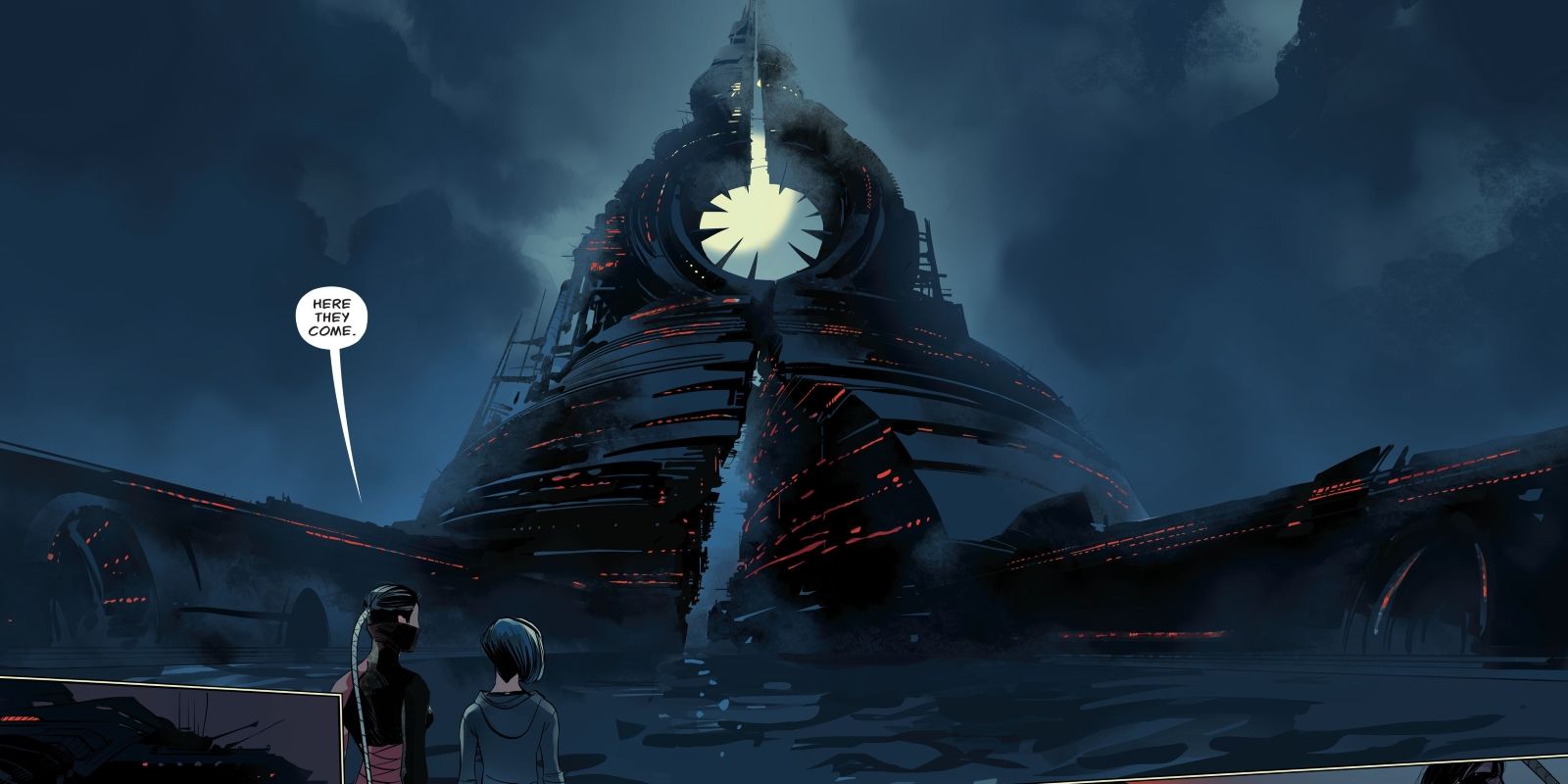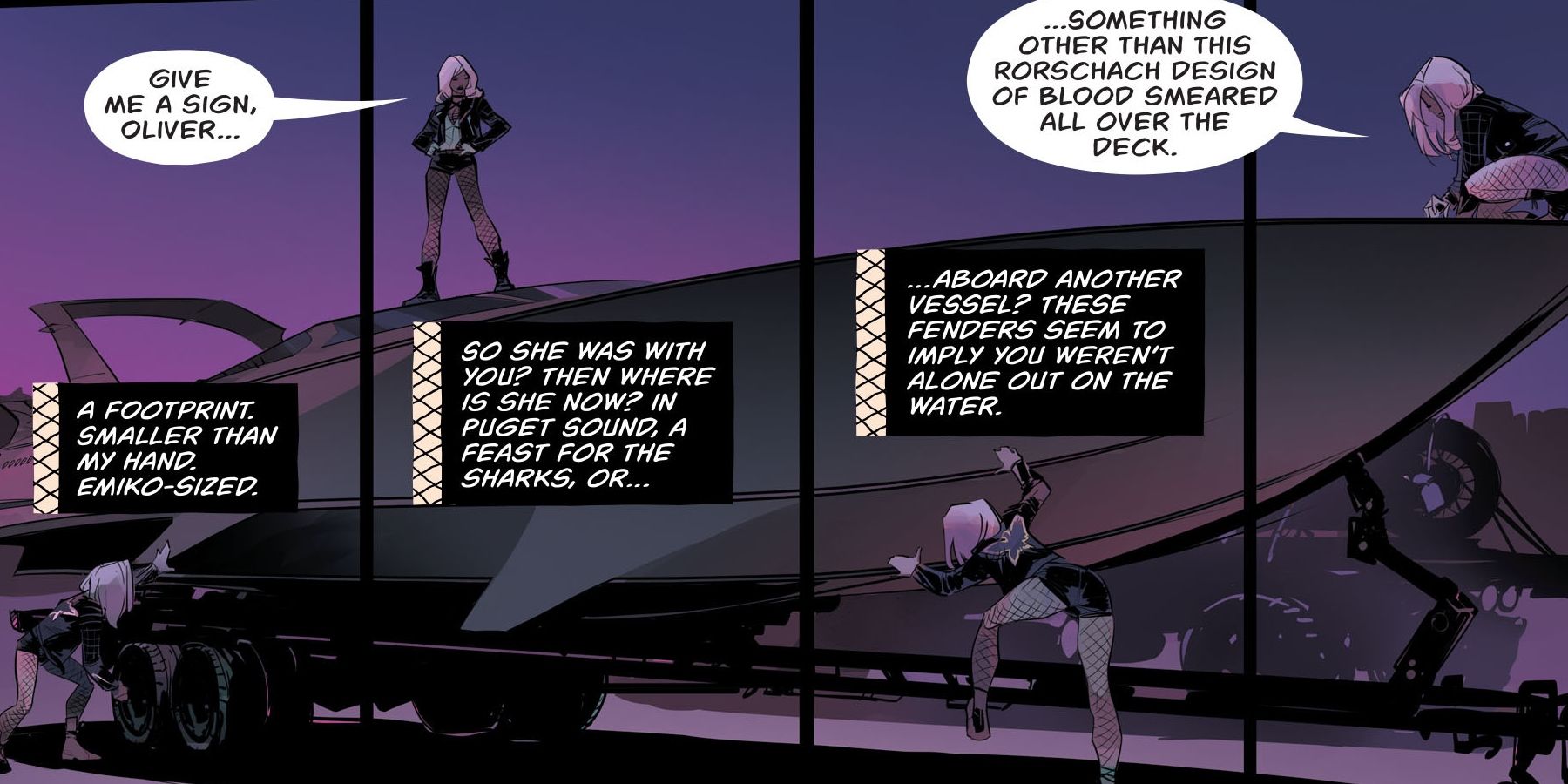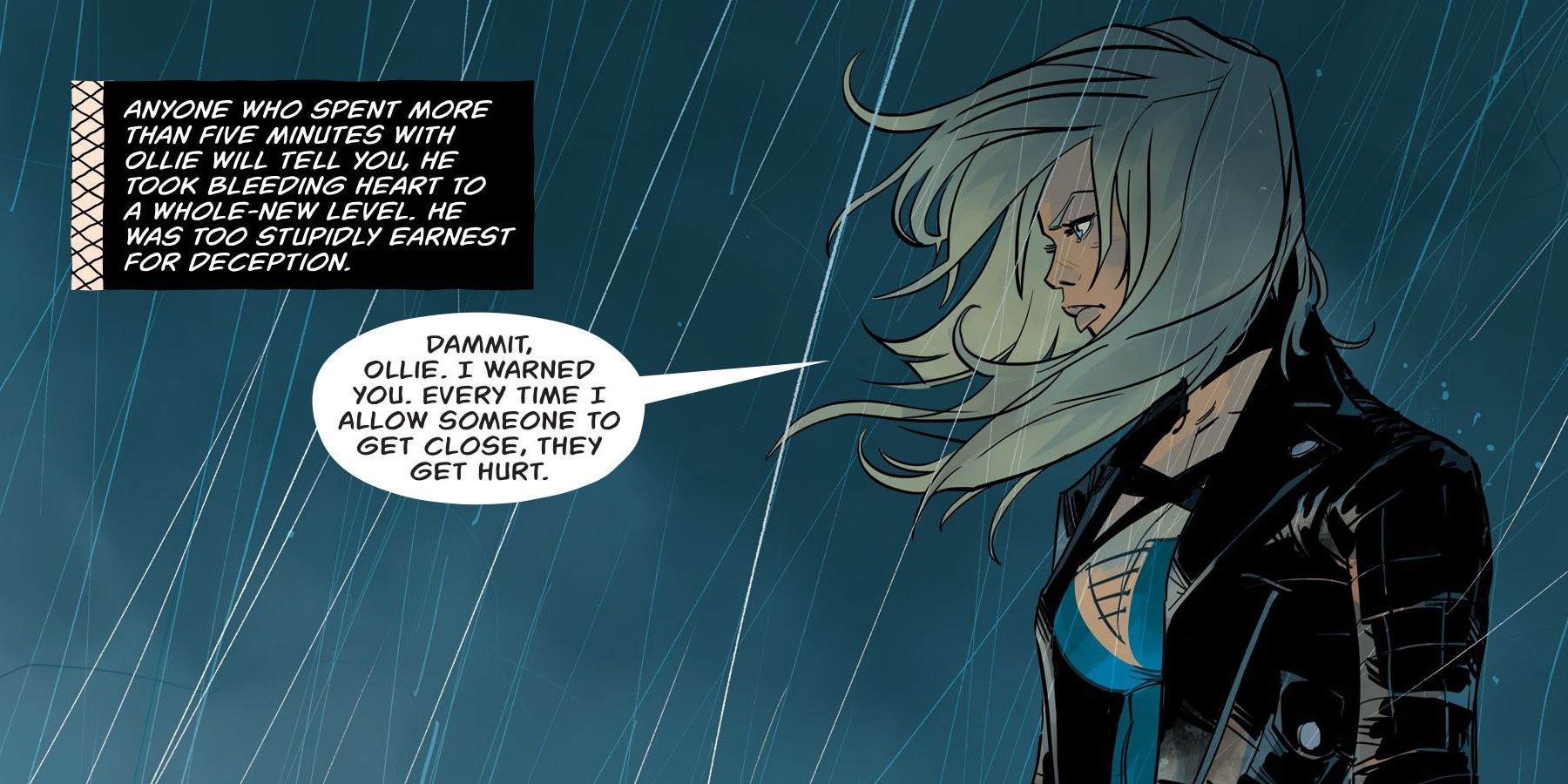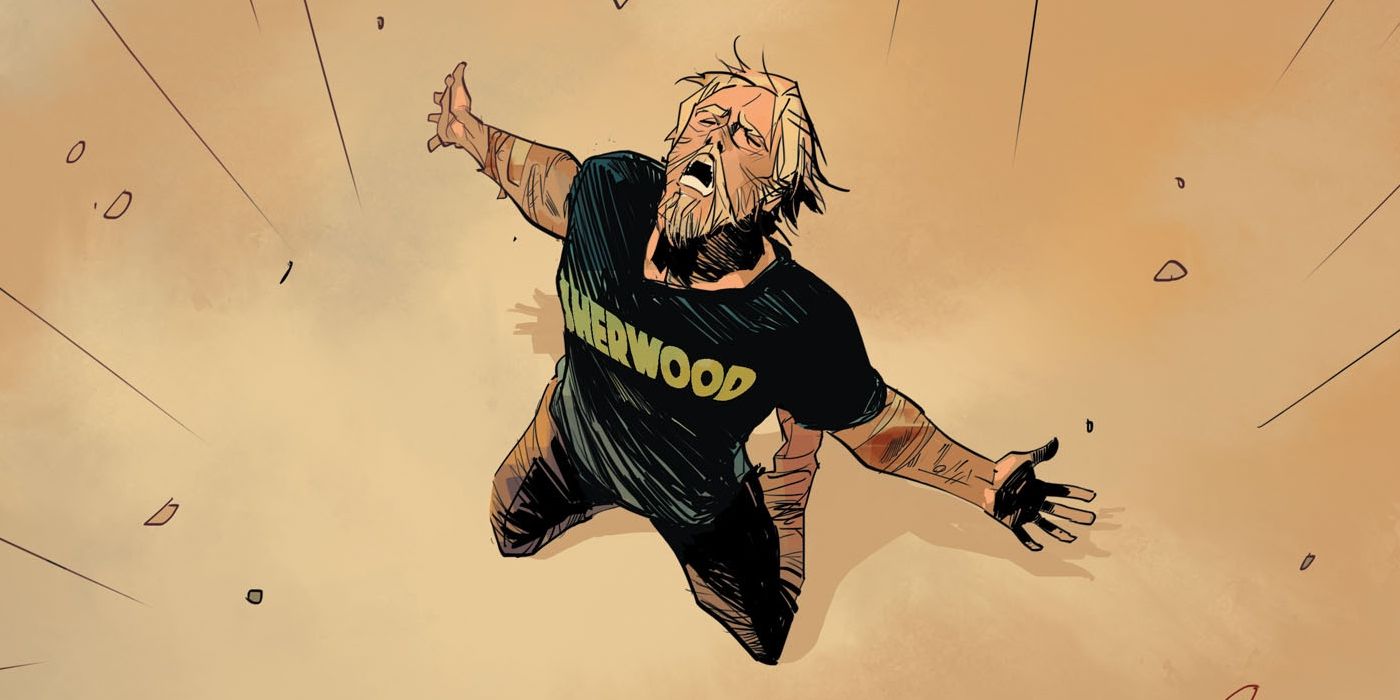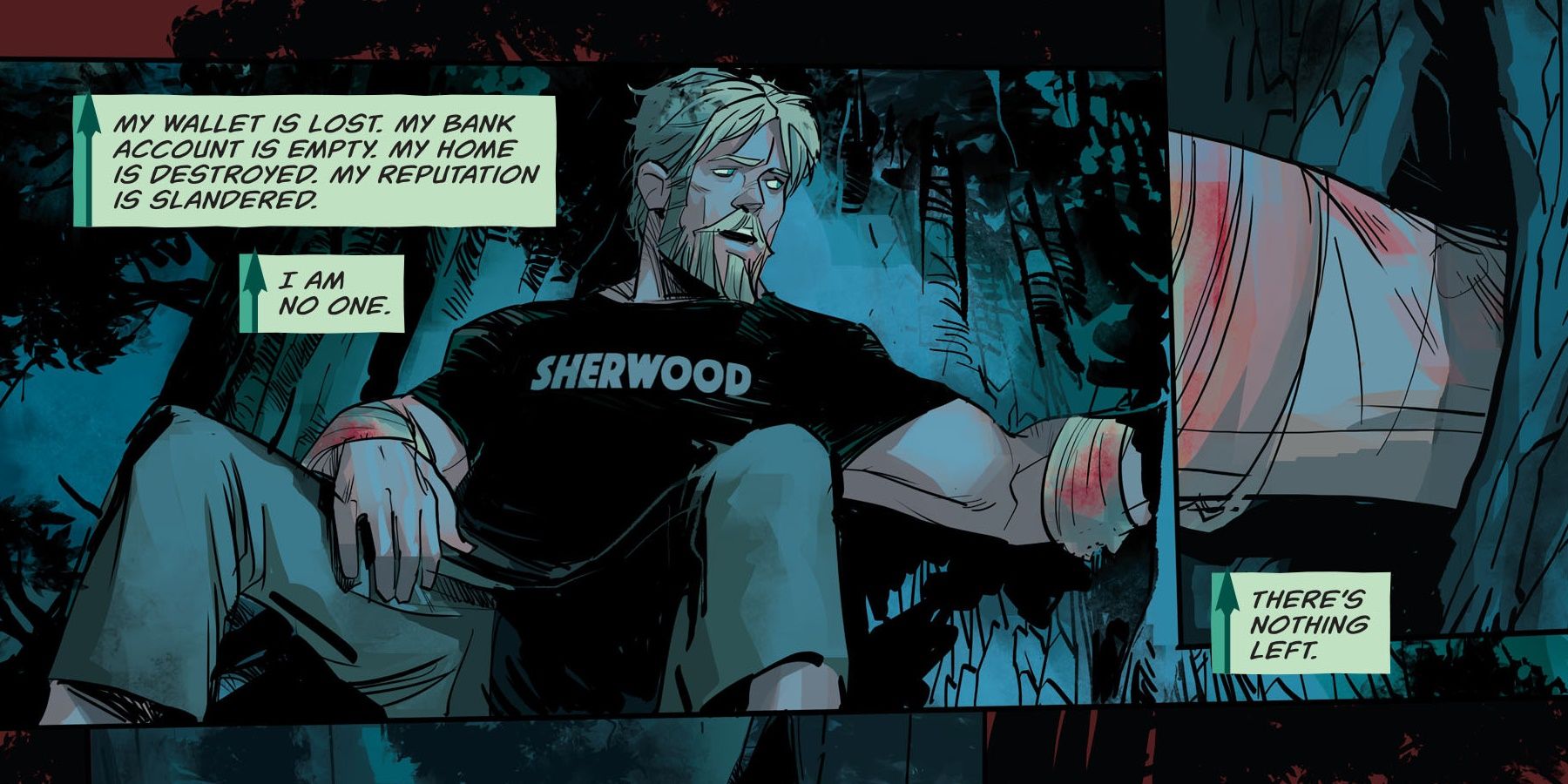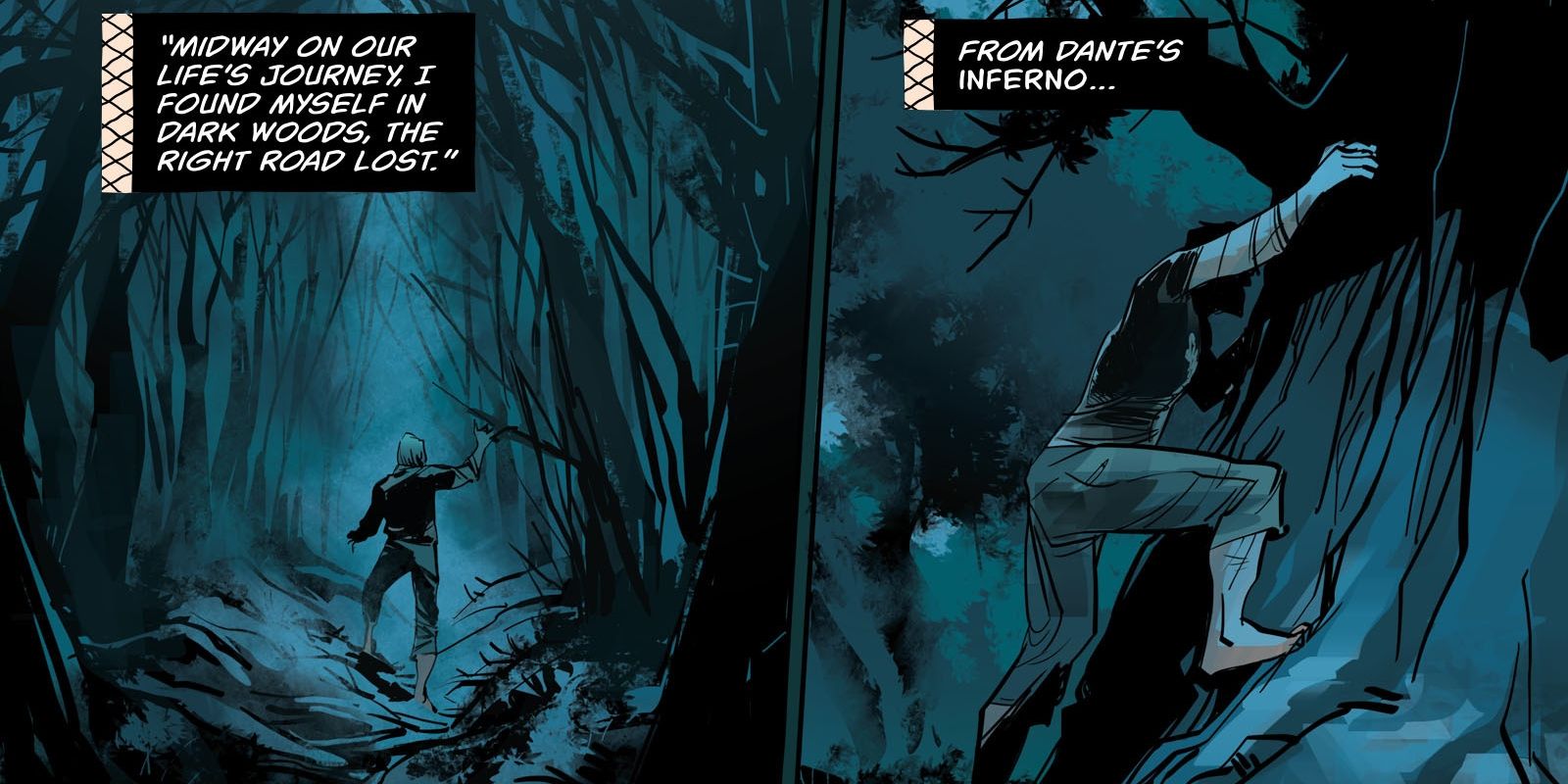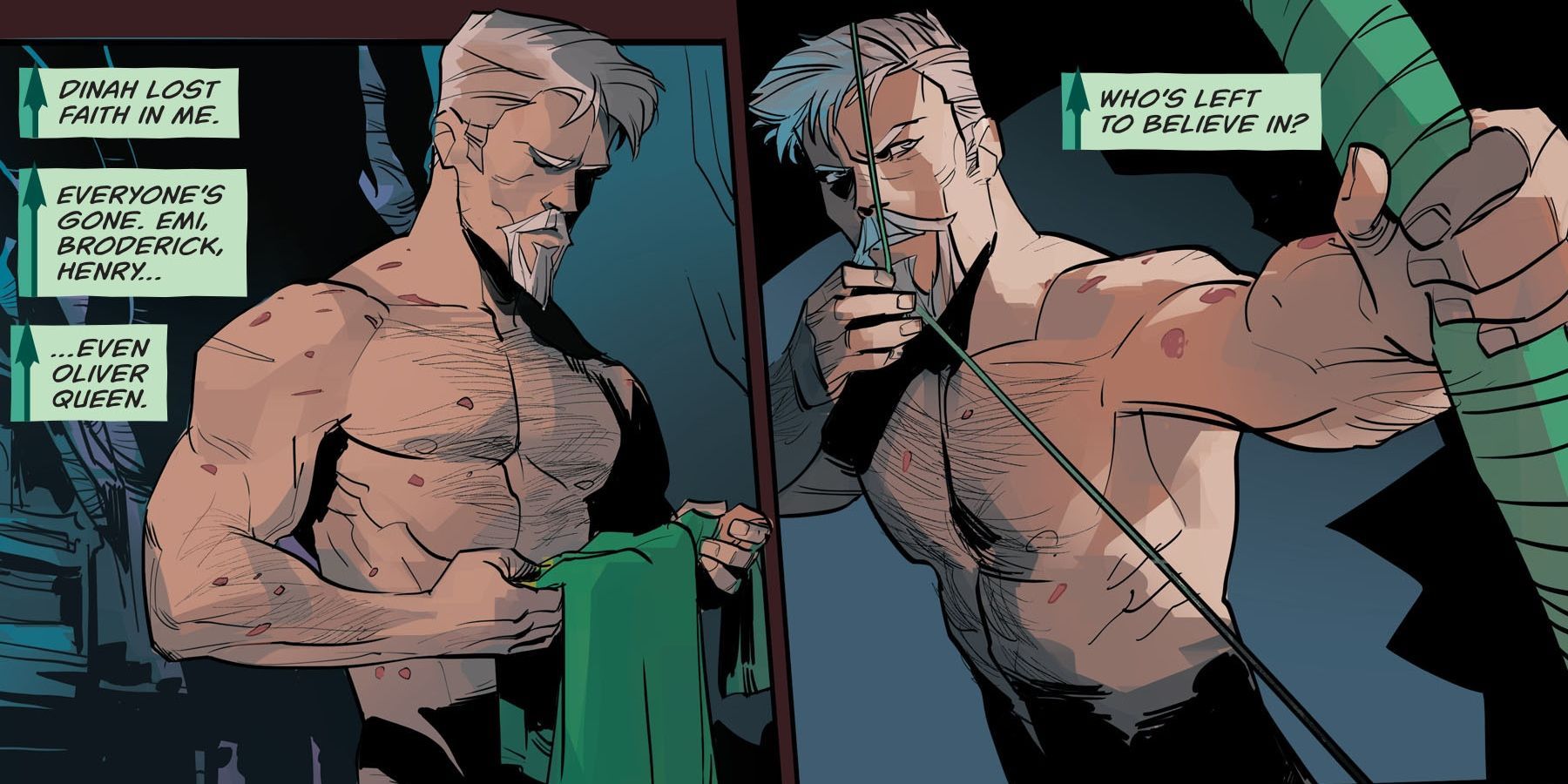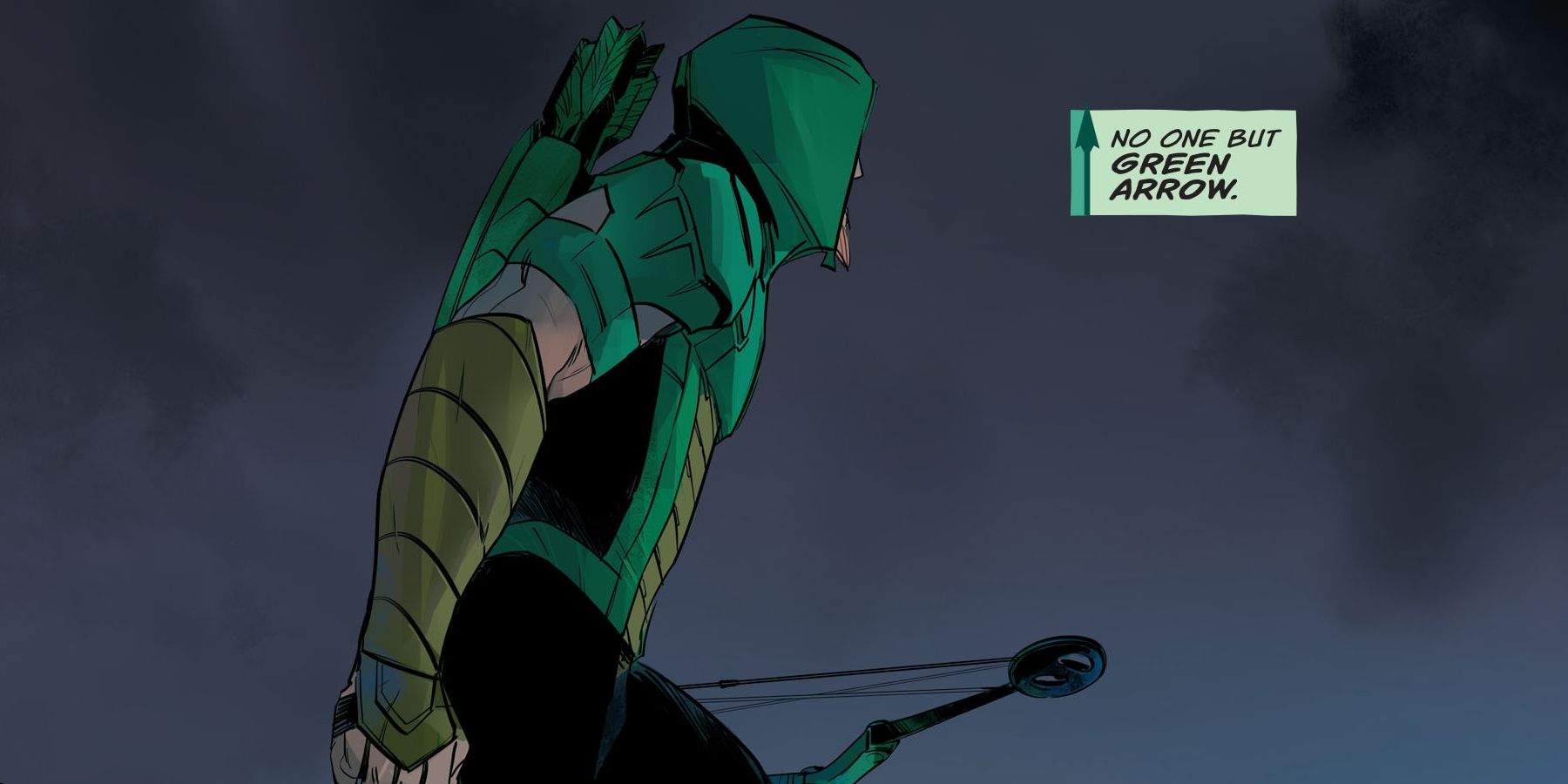[WARNING: This article contains SPOILERS for "Green Arrow" #2]
-
With the DC Comics Rebirth bringing sweeping changes in creative teams, and a return to the beloved legacies of heroes like the Justice League, The Flash and Superman in particular, few would have predicted that it would be Green Arrow hailed by many as the best of DC's catalogue. But as Benjamin Percy and Otto Schmidt have returned Oliver Queen to his roots, readers have made their approval known, quadrupling monthly sales of the title and leading it to some of the highest sales numbers Oliver Queen has ever experienced.
And yet, as if the comic book gods intended to show it's not just the hero who determines the success, but the creators entrusted with them, the future isn't bright for every current take on Oliver Queen. As Percy and Schmidt have shown why, in our opinion, Green Arrow is a vital voice in the DC Universe, the TV version of Arrow is at a crossroads. Having faced criticism for dragging out storylines and actually taking Oliver Queen farther from his roots, even Arrow's most devoted fans have turned their disappointment into dark humor. Now those behind Arrow (including its star) know the show can be better, and with Season 5 it hopes to be.
But there's something worth talking about in regards to the show, and comic book TV in general, now that "Green Arrow" #2 has been released. While a weekly television show remains the closest analogue to traditional comic storytelling, the most common criticism hinges on dragged out plotlines, angst-ridden melodrama, and shameless 'twists.' Honestly, there's enough common ground to compile a list of the 12 Things Superhero TV Shows Need to Stop Doing. And if you're wondering how to go about doing it, look no farther than the "Green Arrow" comic - because it just packed half a dozen of Arrow's most marketed moments into a single issue.
The Death of Oliver Queen
We're certain (well, almost certain) that neither Percy nor Schmidt - nor DC at large - actually intended to reflect the Arrow TV series in the issue's story, "Erasure." Still, the comparisons can be drawn... and if Percy was scripting a Green Arrow TV show, the producers would definitely have some reservations with the pace. Technically, the "death" of Oliver Queen took place in the previous issue, when Ollie found himself ambushed not only by Shado, but the woman's daughter Emiko (Ollie's half-sister). The emotional sting of that reveal barely had time to register before the actual stings of their combined arrows.
By now even those oblivious to comics know that a superhero's death is never final, instead used to, typically, mark the end of one chapter and the beginning of another. The same is true here, but instead of trying to continue the heightened tension, shock, and awe of the previous issue's cliffhanger ending, "Erasure" begins with Oliver being unceremoniously dumped over the side of his boat, and left for dead. And - surprise surprise - seeing a powerful hero reduced to an unconscious, bloodied mess is the most powerful image a fan could look upon (read: no overwrought 'suspense' over whether the star of the series will actually perish).
Even when Ollie is tracked and discovered, he's a badly broken bundle of limbs. Were this a TV adaptation, our plucky hero would have some choice words for his rescuer, fight through the pain and crawl to safety, or do... well, something. But in this issue, an unconscious man is about as uninteresting as it can get (minus his dreams during recovery) until he's healed, meaning the excitement and suspense can be picked up by the other characters on hand.
The Vast Secret Society Revealed
Before Shado and Emi have wiped Oliver's blood from their hands, their new home - "The Inferno" - arrives, captained by their new masters, "The Burned." Who are they, what is The Inferno, and what is the "Ninth Circle Cult" associated with them? We have no idea. But with Schmidt's two-page spread of the massive, haunting, floating fortress - one of the most powerful images in the run so far - that uncertainty is clearly the point.
It's not a twist for the twist's sake, though, even if the story instantly flits away from this bombshell reveal. It isn't even used as a cliffhanger for a single issue (cue the appreciative head nods to Percy). That's mainly because the sudden injection of a massive, shadowy villain isn't the be-all, end-all of the page, subplot, or issue. It also isn't a case of a new monster entering the story for uncertainty's sake, but a reveal - to the reader - of what forces have truly been pushing the plot. And as the story shifts to John Diggle encountering the same group, the dramatic irony make the reader both in the know, and in the breeze: we know the name and face of the villain when the characters don't.. but what they're up to is the new mystery (not offered as a carrot on the end of a season-long stick).
Take a moment and consider how many TV superheroes discover their enemy is actually a pawn in the game of some unknown puppeteers - we'll wait. Now, consider how many of those stories actually became about the ramifications of that twist in the same sequence, episode, or even season. While both ventures thrive on keeping their audience hooked until the next dose, a similar twist on the small screen is more likely delivered at an episode's (or season's) end, meant only to pull the rug out from under the fans, leaving them desperate - and, most importantly, lost - and waiting for the next installment simply to grasp what just happened, what the writers meant to tease, and how the existing story can possibly remain the same.
Black Canary Proves She's a Powerful Ally
There's also something to be said for presenting comic book characters who actually have above-average problem solving skills and a basic knowledge of investigative process (or, perhaps just the motivation to use them immediately). Too often, the hero's "death"/removal from service sends the surrounding cast into confusion, knowing they can't possibly keep up the usual efforts themselves (in Arrow, that happened first when Oliver returned to The Island, and again when he was "killed"). It works in establishing a ticking clock, but all too often turns the fun, energetic, determined supporting cast into defeatist fountains of angst.
We realize we're touching the third rail of comic book TV fandom by bringing up Black Canary (played on Arrow by Katie Cassidy), but it's hard to ignore the fact that this comic book version of Dinah Lance shows the agency, authority, and physical power her fans tend to demand... and does so in just two scenes. First, by continuing her patrols as usual while Oliver is off recovering and presumed dead. Not only that, but promising that she intends to find out what transpired, and "hurt" the guilty parties (doing so in a cold, determined, true-to-character way, not an emotional one).
Instead of the hero's absence causing his closest ally and romantic partner to lose composure, struggle, doubt herself, mourn their lost love, lose heart in her own mission, or forget her own strengths, it fuels her.
Canary is out to uncover the truth - because she can, as well as anyone. And by heading immediately to investigate the recovered boat where Oliver Queen apparently met his end (seriously the Arrow parallels are palpable at times) she cracks the case. Within minutes. Again, it isn't delivered as some drawn out, meandering, foggy investigation (not yet, anyway), because it's the answers that are propelling the story forward here, not the questions. Or, in another way, the readers are the ones asking the questions, and watching as the characters who are better at this than the reader provide the (compelling, satisfying) answers.
Company Stolen, Fortune Lost
Stop us if you've heard this one: the evil conspiratorial forces the hero is battling against make a surprise attack, sidelining the do-gooder, leaving them to wake up and realize they've already lost. Oliver Queen emerges from his weeks-long recovery to learn that his fortune is gone, his company has been taken from him, and even his home has been destroyed by those he thought his friends. It's another plot point with special meaning for the character of Green Arrow, since the amassed personal fortune of Oliver Queen has always complicated the 'Robin Hood' mission he promotes.
Again, the TV version treated Oliver Queen losing his company as a season-long scheme perpetrated in boardrooms by villains hiding in plain sight. Used to highlight Oliver's tunnel vision, the finale delivered the crushing blow: Queen Consolidated had been taken over, Oliver's fortune ruined, and the company his father built now in the hands of his enemies. Relatable trauma for any average viewer, right? I mean, who can't empathize with a multi-millionaire who loses his inheritance overnight, only to watch as his massive technology firm is slowly but surely appropriated in a not-so-hostile takeover?
In "Erasure," Percy and Schmidt skip the scheming and plodding plotting, since it's obviously not something they want to spend their story playing out. Instead, the story hinges on what happens next, in far more human terms. Take a look at the words used to describe Oliver's loss:
Oliver Queen is dead to the world. His friends no longer trust or support him. He has none of the lifestyle he was accustomed to. And even his home is destroyed just to spite his memory. Sure, that may be just as unlikely a tragedy to befall a reader as losing an empire - but it is tragic. And it's made tragic by being communicated in terms anyone could understand: a missing wallet, empty bank account, destroyed home and reputation... true loss that millions of people could relate to.
Yet there's no wallowing to be found. While one of our painfully formulaic comic TV shows might suggest that the question of "how will Oliver Queen go on without fame and fortune?" is worth tuning in to see answered - even spread across a season break - "Erasure" shows that... well, showing Oliver Queen going on is the more satisfying path. Sure, Oliver Queen losing his fortune and status might count as a change to the status quo big enough to shock TV viewers, and thereby keep them watching. But in "Green Arrow," Oliver Queen losing his fortune takes place in the space of three pages, propeling him on the path where the story Percy truly wishes to tell can be found.
We could being to explore how this loss - and the wording - is the first step in Oliver Queen truly grasping and beginning his mission for the common man, but that's a discussion for another day. Oliver Queen has lost everything. Next scene.
Returning to The Wild
When everything you have is taken away from you, there's nowhere to go but home. Or, if you're a tortured hero forged from a boy into a man by hardship, heading back to where that transformation took place is usually the first step in the next process. In Arrow, the island of Lian Yu has been a regular cast member, and its forests a location that Oliver Queen has never been able to truly leave. It's where he first found himself, his mission, and his strength. So in Season 2's premiere, he had returned to it for... admittedly vague reasons (to us, at least).
In "Erasure," Percy and Schmidt pay homage to that idea - not Arrow's specifically, but the archetypal concept of a dark wilderness clouding the path of the traveler. Oliver returns to the woods as a practical stop on his journey, but its literary meaning is explicitly stated thanks to a quote from Dante's "Inferno." It's a clever twist, since the reason Oliver actually returns to the wilderness in this case is to find a secret his "Doomsday Cellar." A small trove of the essentials he would need should the worst happen, concealed inside the trunk of a massive tree. Oliver returns to the wilderness to gain a new mission? Check.
A New Identity, A New Mission
The new base of operations for the presumed-dead Oliver Queen established, the issue concludes with Oliver even closer to the archetypal archer, Robin Hood. But his emergence from the wilderness isn't exactly an optimistic one, in terms of his temperament or worldview. With a shower and shave taken care of (you need the goatee), Oliver takes stock of where he now stands, having been truly beaten by an enemy he wasn't prepared to fight - or even aware existed. And the picture doesn't look good.
Having lost an ally in Canary due to his failure to truly see his life and status for what it was, he's without a friend. Having lost his sister to her mother, he is without family. Having lost his support team because his I.T. genius Henry... well, has an actual day job to worry about, he is alone. Not just alone, but alone as an unknown man - Oliver Queen has been erased. Not physically, since he still lives, but his enemies have succeeded in their erasure of what defined him (hence the title, get it?).
So, what's left? Who's left for the man with the bow and arrow to become?
Seeing superheroes reiterate their moniker, mission, or identity isn't exactly a rare thing - The Flash begins every issue by letting readers know he's "the fastest man alive." But the context here is impossible to not compare to the same moment in Arrow. With the identity of "The Arrow" slandered and destroyed by Oliver's opponents, the former millionaire decides to leave the identity behind. But when his home (and friends) call him back on the job, he must "be someone else. Something else." Emerging as "The Green Arrow."
The context is obviously different, but the similarities - Oliver "dies," returns, and takes the chance at anonymity to embrace a new identity with renewed determination - are uncanny. We're not saying that this single issue paying off in such a powerful moment is any more earned or satisfying than Arrow's version (the comparison really can't, and shouldn't be made). But it is a reminder that these first-pumping moments of a hero remembering their call to action, and promising the audience that powerful moments happen all the time don't need to be rare. It's a here being a hero... and isn't that what we've all come to see.
-
Again, we would prefer readers take this look at Benjamin Percy's "Green Arrow" series so far (Schmidt will soon be handing off art duties to cover artist Juan Ferrayra) as less of an indictment or criticism of Arrow specifically, and more of a statement that fans of Oliver Queen should simply be reading this book.
After all, the differences - not necessarily the shortcomings - in different versions of a comic book hero are a lot easier to appreciate when the audience (and the creators themselves) can see what paths are the most rewarding, and which pitfalls should be avoided.
NEXT: Green Arrow: Rebirth's Oliver Queen is The Anti-Batman We Need
Green Arrow #2 is available now.
[vn_gallery name="DC Comics Rebirth" id="793575"]

